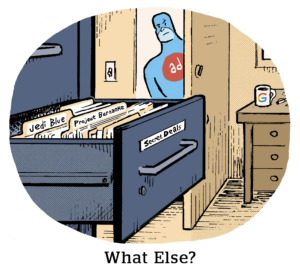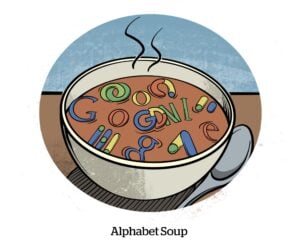 You are reading AdExchanger Politics, our news roundup in which senior editor James Hercher tracks the latest developments in political advertising, augmenting our political marketing commentary and news coverage. Want it by email? Sign up here.
You are reading AdExchanger Politics, our news roundup in which senior editor James Hercher tracks the latest developments in political advertising, augmenting our political marketing commentary and news coverage. Want it by email? Sign up here.
While everyone in politics is figuring out on the fly how COVID-19 will affect US elections this year, it seems already clear that the virus will majorly disadvantage challenger campaigns, especially in state-level and other down-ballot races.
Since it’s still early in the election season and many primaries are delayed, there hasn’t been a wave of visible dropouts. It would also be hard to measure the net impact on political fundraising and ad spend, because in many cases candidates who quietly planned to run will never actually enter the race.
Media consultants have already notified the political data seller L2 Political that some prospective candidates who planned to self-fund campaigns have delayed or called off their runs, said L2 SVP Paul Westcott. Candidates can’t make up for low name recognition with door-to-door campaigning and event appearances during the pandemic, and they won’t commit potentially hundreds of thousands of dollars to self-fund a race during the ensuing recession, he said.
Field organizing put the Queens Democratic Socialists of America (DSA) on the map, said Matt Thomas, the group’s former spokesperson and current campaign communications director for Zohran Mamdani, a DSA member running to unseat a Democrat in the New York State Assembly. The Queens DSA is best known as the grassroots muscle behind Alexandria Ocasio-Cortez’s 2018 congressional victory.
But could that kind of challenger campaign work this year?
The Queens DSA has hundreds of volunteers who organize every week and thousands of people who’ll turn out for specific causes or candidates, Thomas said. Especially in New York City, where there’s low turnout during the primaries, the DSA can flip a seat by knocking on more doors, having more conversations with voters in the district and hanging more fliers.“The unpaid labor we get from volunteers means we can run robust, professional-caliber campaigns,” he said.
But that’s the kind of retail campaigning taken off the table by COVID-19.
There’s still the same volunteer energy for candidates backed by the DSA, Thomas said. But the challenge is turning that into “new connective tissue” with local voters when the tried-and-true tactics aren’t possible.
As a result, the advantage this year will shift heavily to paid media, he said.
That could easily benefit television and digital ad spend. Large campaigns and super PACs – those that book TV and video reservations and accounts – have fundraised heavily already. Plus, for those big political spenders, “organizing” is a large expense. If the Biden campaign can’t put boots on the ground in key states, a lot of that money will fall to digital media and TV.
Challenger campaigns, on the other hand, can’t just reroute volunteer enthusiasm and unpaid hours to paid media.
DSA volunteers placed 50,000 calls in a recent phone-banking drive and are implementing a text message program, Thomas said. And there are other more experimental ways to channel volunteer energy. The Mamdani campaign, for example, has dispensed volunteers for medicine and food delivery for those in need in the district, and are distributing hundreds of meals per day through local mosques to families during Ramadan.
“Making a person-to-person case for a campaign is how we overcome campaigns that saturate a district with paid operations,” Thomas said. “But that obviously is the thing most impacted by COVID.”
* * *
WarnerMedia, CNN’s parent company, sent a cease-and-desist letter to President Trump’s campaign last week over a commercial it says makes “false, deceptive and misleading” edits to CNN content to make it look like network anchors are crediting the president’s travel ban policy in response to the coronavirus.
The president’s reelection campaign, which brushed off the criticism and hasn’t pulled the ad, has tested the political ad policies of many major media players.
Facebook and YouTube faced withering criticism last year for running Trump campaign ads making demonstrable lies. Sen. Elizabeth Warren, D-Mass., promoted a Facebook post in response claiming Mark Zuckerberg endorsed President Trump in an apparent attempt to bait Facebook into taking down her ad.
In March, Twitter deployed its “manipulated media” label for the first time, attached to a video of Joe Biden edited by White House social media director Dan Scavino.
And Nancy Pelosi, the Democratic speaker of the House, clashed with Twitter and Facebook for not removing an edited video posted by President Trump that showed her tearing up a copy of his State of the Union speech as he honored a Tuskegee airman, not at the end of the speech, when she actually tore up the pages.
Facebook finally took down a Trump ad in March that directed users to “the Official 2020 Congressional District Census” that actually went to a landing page operated by the campaign.
The platforms have created ad archives, but they still often rely on reporters to vet content. The Trump campaign’s Facebook census ads would have been stetted, but the political newsletter Popular Information inspired official Facebook census partners (civil rights groups and experts who helped outline a 2019 census misinformation policy) to take up the cause internally.
Further complicating the issue is that content can be organically boosted by the campaign, without paid media, which is where the stricter ad policies come into effect. A doctored video claiming to be a Biden campaign ad went viral on Twitter and Reddit with some help from senior Trump campaign and White House staffers. A few days later, after the organic misinformation campaign was reported by The Verge, Twitter removed the post and some of the retweets by senior Trump campaign officials.
* * *
• You might think online polling would be easier and more effectively reach scale in states that aren’t heavily covered by mainstream pollsters, who focus on larger states where it’s easier to reach people or political battlegrounds that drive headlines. Logan Dobson, managing director of the Republican ad agency Targeted Victory and a polling vet, has a worthwhile Twitter thread deconstructing an online survey released earlier this month by Montana State University about likely voter support in the Senate race.
• The Washington Post found an interesting perspective on the two presidential campaigns by downloading the TeamJoe and Trump 2020 apps and engaging with subsequent texts and emails to assess the supporter experience. The Trump campaign app “gamified” sharing and volunteering and actively tried to replace news outlets as a primary information source. “It was easy to forget that the Biden app existed.”
Follow James Hercher (@JamesHercher) and AdExchanger (@adexchanger) on Twitter.











